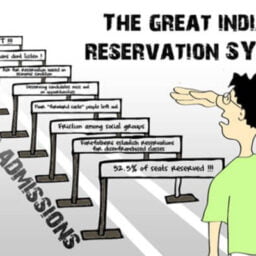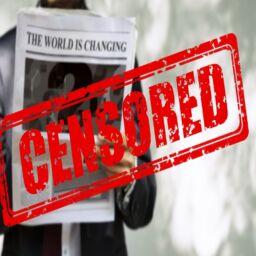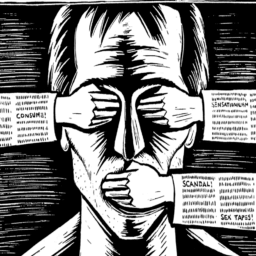Introduction
Media is known as the fourth pillar of democracy. It reflects our society, so it is very important to have free and fair media in every government. In India, people see the root of media for the first time ever during the time of the Nationalist movement. Media plays a very important role in assuring the citizens of their rights and liberties. Media has got its success from when it can be able to form a public opinion, for example, a lot of uncomfortable questions were raised in the Tehelka scam and media helped to form the public opinion about it. In the year 2010, the satirical release of Peepli shows the actual picture of media newsrooms. The story of this film revolved around a debt-ridden farmer who announced suicide. It created a media circus. After this incident, the Radia tapes incident arises the conflict between the right to privacy and the right to information. The right to information and the right of communicating the information through media is ensured by Article 19(1) of the Constitution of India.[1]
About Media Trial
The Constitution of India has not to speak about freedom of the press in its part III, but the Honourable Supreme Court provides the recognition of freedom of speech and expression which includes freedom of the press in a number of precedents. Today media has gained its prominence through its rapidly changing socio-economic conditions. Criminal jurisprudence presumes that a person is innocent till he is proven guilty by a court of law. Now media goes beyond its domain for the excessive coverage. Now they are trying to publish and cover the interviews of all the witnesses or relatives of the victim. It helps to prejudge the issue of conviction of the accused when the matter is pending before the judiciary. Article 19(1) of the Indian Constitution ensured the freedom of speech and expression, and Article 19(2) imposes a reasonable restriction on it. Section 2 of the Contempt of Court Act defines criminal contempt. It includes interference of the administration of Justice. The Constitution of India also guarantees the right to have a free and fair trial of any accused under Article 21. However, to make the harmony between two rights i.e. freedom of press v. fair trial Law Commission of India proposes several amendments in its 200th report and also have taken measures for the postponement of proceedings further it also said that such powers cannot be vested in the subordinate court when criminal proceedings are active. [2]
Jesica LAL Murder Case
Famous Delhi-based model Jesica Lal was shot dead by Manu Sharma in the year of 1999 at a party hosted by socialite Bina Ramani n her restaurant Tamarind Court. Delhi lower court interrogated around three hundred witnesses but all of them turned hostile. After all, the legal proceedings due to lack of evidence Delhi court acquitted Manu Sharma with other suspects. After this verdict the famous news channel, NDTV received thousands of text messages from various people to initiate the matter again and to take action against Sharma and other accused. People started to lose faith in the Indian Judiciary. A successful candlelight vigil was organized in front of India Gate by the media. It helped to form various support groups to support the miscarriage of justice. Media heavily resorted to investigative journalism which got success ultimately. Media played a very crucial role to help to get the justice of deceased Jesica various newspapers put fiery headlines like “No one killed Jesica” etc. Later on, Director Raj Kumar Gupta tells this incident in his film called “No one killed Jesica”.[3]
Bad Boy Billionaires vis-a-vis Freedom of speech v. Trial by Media
An interim stay was issued by Civil Court in order to restrain Netflix from airing its web series Bad Boy Billionaires. B Ramalinga Raju the guilty of a multi-crore accounting scandal of Satyam Computer Services Limited filed a petition. The notice was issued by XXV Additional Chief Judge to Netflix INC in the USA, Netflix Entertainment Services India LLP. The web series was an investigation docuseries promoted by Netflix. It explores greed, fraud, and corruption. It built up and brought down India’s most infamous tycoons. Ramalinga Raju made an allegation that this web series will violate the concept of fair trial and privacy and also will defame his image across the world. He requested before the court that to declare the release of proposed docuseries is amounting to defamation and also conduct the media trial for the pending adjudication of the case against him in the competent courts of law.
The Additional Chief Metropolitan Magistrate’s court awarded seven years of imprisonment in April 2015 to the founder of Satyam Computers for committing the fraud of over 7000 crore rupees in the IT firm which came to light in 2009. After this incident, a plea was filed by Netflix against a Bihar lower court order to restrain it from using the name of businessman Subrata Roy was refused by the Honorable Supreme Court. Then the plea of Mehul Choksi who was accused of nearly USD 2 billion PNB Scam dismissed by the Delhi High Court. Interim orders of these cases are being delved into the issue of freedom of speech versus protecting the reputation of individuals or there have been cases to stop the release of films frequently. According to the senior advocate Uday Singh nothing should be stopped or put an order for an injunction against any publication, dissemination, broadcast, or exhibition. Some rare issues like hate speech, child porn, incitement to commit heinous crimes, and genocidal incitement are exceptions. According to Anand Desai media does not conclude anything regarding such cases but the court looks that whether media create an impression that may result in a real and substantial risk of prejudice for the fair trial and the proper administration of justice.[4]
Conclusion
As media is the fourth pillar of democracy, we can see that how media plays a very crucial role in our society and how it helps to administer justice and fair trial.[5] But in the case of Bad boy billionaires, each and every episode has been portrayed as guilty when the trial is on. Each and every interview declared them as frauds and cheats which is against the legal principle of innocent until proven guilty. Here in this matter media does not constitute a fair trial.[6] Media only can interfere when we can see that there is a miscarriage of justice after the end of a legal proceeding like we have seen in the Jesica Lal murder case and any other media trials. There is the right of freedom of speech and expression but with some imposition of reasonable restrictions, you cannot plead guilty to anyone until it has been proven but this web series opposes all the legal principles and the media failed to put its impact.
Author(s) Name: Saptaparni Raha (Adamas University, Kolkata)
References:
[1] Isha Tyagi and Nivedita Grover, ‘Media Trials and The Rights of the Accused’ <https://www.lawctopus.com/academike/media-trials-and-the-rights-of-the-accused/> accessed on 13 November 2021.
[2] Ibid
[3] Kathakali Nandi, ‘Investigation Role Of Media: Responsibility To The Society’ (Global Media Journal – Indian Edition/ Summer Issue / June 2011)
[4] Arpan Chaturvedi ‘Netflix’s Bad Boy Billionaires: Freedom Of Speech vs. Trial By Media’ <https://www.bloombergquint.com/law-and-policy/netflixs-bad-boy-billionaires-freedom-of-speech-vs-trial-by-media> accessed on 13 November 2021
[5] Supra Note 3
[6] Supra Note 3
















